News
-
 Climate
ClimateSome trees are coping with extreme heat surprisingly well
Rising temperatures could reduce trees' ability to photosynthesize. Scientists are trying to figure out just how close we are to that point.
-
 Science & Society
Science & Society5 years after COVID-19 became a pandemic, are we ready for what’s next?
We’ve learned a lot about COVID-19 over the last five years, but big questions remain. Recent federal actions may hinder the disease’s management.
-
 Science & Society
Science & SocietyIt’s ‘personal.’ What the Stand Up for Science rally meant for attendees
Stand Up for Science rallies in Washington, D.C., and across the United States drew crowds of people worried about cuts to scientific funding.
By Meghan Rosen and Alex Viveros -
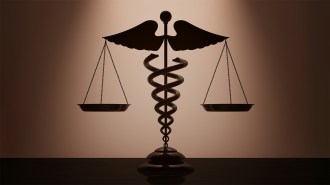 Artificial Intelligence
Artificial IntelligenceMedical AI tools are growing, but are they being tested properly?
AI medical benchmark tests fall short because they don’t test efficiency on real tasks such as writing medical notes, experts say.
By Ananya -
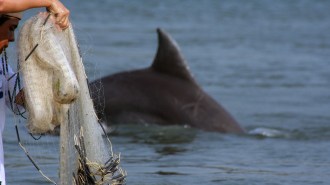 Animals
AnimalsDolphins and humans team up to catch fish in Brazil
In Brazil, where humans and dolphins fish in tandem, cooperation both within and between species is essential for the longstanding tradition.
-
 Animals
AnimalsSome sea turtles are laying eggs earlier in response to climate change
A 1-degree-Celsius change in water temperature prompts sea turtles in Northern Cyprus to lay eggs nearly a week earlier on average.
-
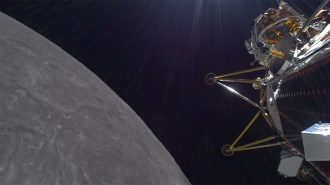 Space
SpaceTwo privately-owned spacecraft make contact from the moon
Firefly Aerospace landed a craft safely last week, a first for a private company. But Intuitive Machines’ mission ended when its lander wound up on its side in a crater.
-
 Climate
ClimateWarming is chasing cloud forests steadily uphill
Cloud forests are biodiversity hot spots and crucial water sources. But climate change and deforestation are shrinking their range, new data show.
By Douglas Fox -
 Animals
AnimalsHow a Labrador retriever’s genes might affect the dog’s obesity risk
Understanding the genetics of Labrador retriever obesity may help dog owners mitigate their best friend’s weight gain.
By Alex Viveros -
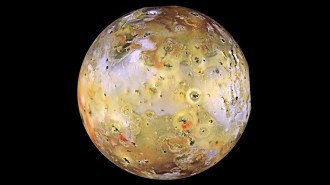 Planetary Science
Planetary ScienceJuno reveals dozens of lava lakes on Jupiter’s moon Io
NASA’s Juno spacecraft identifies over 40 enormous lava lakes on Io, shedding light on the extreme volcanism sculpting Jupiter’s moon.
-
 Health & Medicine
Health & MedicineTreating male partners along with women may help stop bacterial vaginosis
In a clinical trial, treating both partners in a relationship significantly reduced the likelihood of recurrence of bacterial vaginosis.
-
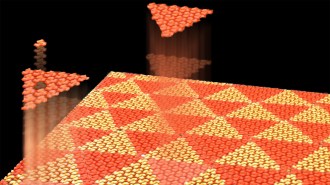 Math
MathThe einstein tile rocked mathematics. Meet its molecular cousin
Chemists identify a single molecule that naturally tiles in nonrepeating patterns, which could help build materials with novel electronic properties.